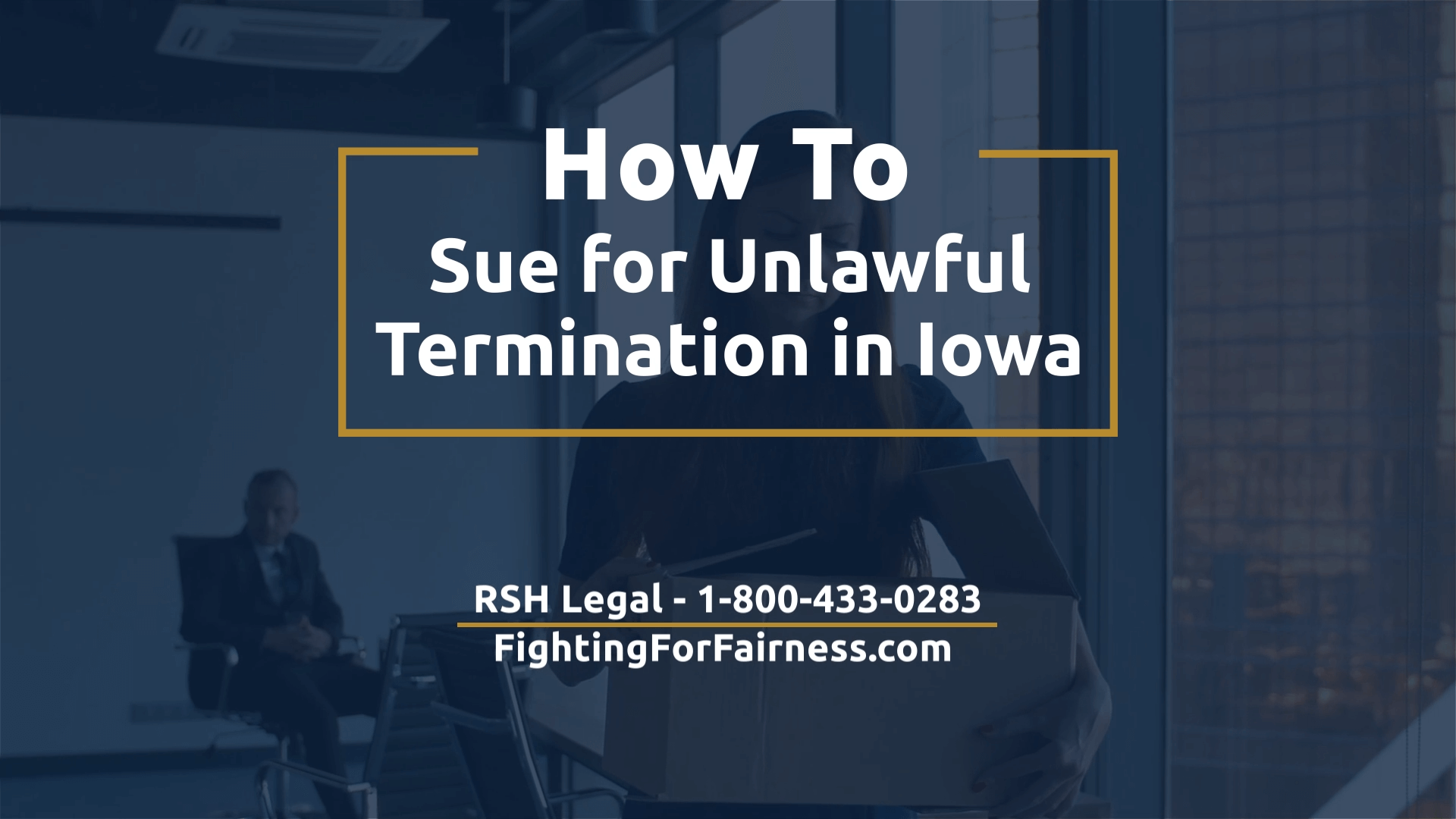Are you an Iowa employee who has recently been terminated and believe it may have been an unlawful termination?
What Unlawful Termination Actually Legally Means
Of course, not all terminations are unlawful. Often, even a very unfair termination in Iowa isn’t against the law. That is because Iowa is an “at-will” employment state. Unless you have an employment contract or benefit from a union collective bargaining agreement, you are likely an “at-will” employee. That means you can quit your job “at will” but it also means that your employer can fire you “at will.”
Even “at-will” employees have legal rights, though. While employers are given a lot of discretion to make hiring and firing decisions – even unfair ones – there are certain reasons that a firing might cross the line from unfair to illegal.
Discrimination claims
For example, both Iowa and Federal law prohibit certain types of discrimination in employment decisions. These laws prohibit employers from discriminating against employees because of their:
- Race
- Color
- Sex
- Religion
- Gender
- Age
- Disability
- National origin; or
- Sexual orientation
These laws also make it unlawful to retaliate against an employee for opposing discrimination – or harassment – related to those protected classes.
Wrongful discharge and retaliation claims
Another unlawful termination may involve a situation where an employee participated in what the law calls “protected activity” and then the employer terminates the employee because of that protected activity. This situation may arise when an employer fires an employee for:
- Reporting a work injury or pursuing workers’ compensation benefits;
- Complaining about a clear workplace safety violation or making an OSHA complaint;
- Engaging in legally required conduct, such as mandatory reporting;
- Reporting illegal activity or participating in an investigation of illegal activity;
For an employee’s activity to be considered legally protected from this type of retaliation, there must be a clear Iowa statute or regulation that addresses what the employee did.
Filing an Unlawful Termination Lawsuit in Iowa
2 / 2
3 / 3
If you think you experienced protected class discrimination or got fired for engaging in legally protected activity, you need to know a few things.
The first thing to know is that there are legal deadlines you have to meet. Generally, the deadline to bring a claim for unlawful protected class discrimination is 300 days from the discriminatory act. Other types of unlawful terminations – including those based on protected activity – have a longer deadline. But you still must generally take action within two years of your employer’s unlawful conduct. Determining the right deadline is not a straightforward task and the sooner you consult an attorney, the better.
Second, not all claims are lawsuits right away. For example, cases involving protected class discrimination and harassment have to first go to an administrative agency such as the Iowa Civil Rights Commission or the EEOC. You can file other types of unlawful terminations in state or federal court immediately. An experienced employment attorney can tell you which path your case may need to follow.
Third, regardless of where you have to start your filing, you will need evidence to support your claims. Often, your employer is in possession of the most useful information and you may need an attorney or even a court to get information. However, you should collect what you have access to, such as:
- Your personnel file or any performance evaluations you still have copies of;
- Important documents and records, including any performance improvement plans, disciplinary write-ups, and written termination letters;
- Any notes, emails, voice recordings, or other tangible evidence from important meetings or conversations;
- Employee handbooks or policies from your employer;
- Documents your employer may have shared as part of an unemployment, workers compensation, or other legal process; and
- Contact information for former colleagues and supervisors who may be in possession of useful information
It is often the case that employers give false justifications for termination, hiding their true motivations. These types of information can help serve as circumstantial evidence to prove that your employer is hiding the ball on what truly motivated their termination decision.
It is important you speak with an experienced Iowa employment lawyer as soon as you have been fired. A skilled attorney who specializes in unlawful termination cases can analyze your situation and evaluate whether you have a legal basis to bring a case.
To get your free, no-obligation case evaluation, call RSH Legal today at 1-800-433-0283.




